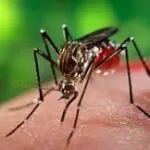WAGENINGEN, Netherlands – A new study from Wageningen University & Research (WUR) suggests that the Netherlands could witness a significant reduction in chronic diseases by 2050 if its citizens adopt healthier eating habits. The research, published in eClinicalMedicine, indicates that consuming two pieces of fruit daily and eliminating processed meat could lead to a roughly 20% decrease in new cases of type 2 diabetes, coronary heart disease, and strokes.
Researchers, led by Ming-Jie (Frederick) Duan, examined the impact of adhering to the Dutch Health Council’s dietary guidelines. Their findings highlight the substantial health benefits associated with increased fruit consumption and the elimination of processed meats like sausages and hamburgers.
Currently, Dutch citizens consume only half the recommended amount of fruit and approximately 40 grams of processed meat daily, according to the National Institute for Public Health and the Environment (RIVM). The study reveals that eliminating processed meat could prevent 22% of new type 2 diabetes cases and 21% of coronary heart disease cases by 2050. Additionally, increasing fruit intake to two pieces daily could reduce stroke cases by over 18%.
“That may not seem like much, but it represents a significant number of people,” Duan emphasized, noting that over one million Dutch citizens currently live with type 2 diabetes.
To project public health outcomes for 2050, researchers used data from previous studies and the RIVM food consumption survey. They discovered that Dutch diets remain deficient in vegetables, fruit, and legumes, while consumption of sugary drinks and red and processed meat remains high.
Sander Biesbroek, the publication’s last author, explained, “From earlier studies, we know how certain food groups influence the risk of diseases such as diabetes and heart disease. By combining this knowledge with current consumption patterns, the researchers calculated how many disease cases could theoretically be prevented if the population adhered to dietary guidelines.”
The study underscores the potential benefits of promoting healthier eating habits, not only for individual well-being but also for reducing the burden on the healthcare system and lowering medical costs. However, Biesbroek acknowledges the challenges of altering established eating patterns.
He advocates for policy interventions to create a more supportive food environment, such as reducing taxes on healthy foods and increasing taxes on unhealthy products like processed meat.
The WUR study also explored the impact of other dietary recommendations. It found that adequate consumption of nuts and seeds could moderately reduce the risk of coronary heart disease and diabetes, while increasing whole grain intake could prevent 10% of strokes. Eliminating processed meat also showed a 10% reduction in bowel cancer and stroke cases.
More information: Ming-Jie Duan et al, Non-communicable disease burden through adhering to Dutch dietary guidelines: a modeling study to estimate future reductions, eClinicalMedicine (2025). DOI: 10.1016/j.eclinm.2025.103170
Disclaimer: This article is based on a study that models potential future health outcomes based on dietary changes. These are hypothetical projections and do not guarantee specific health results. Individual responses to dietary changes may vary. The information provided should not be considered medical advice. Consult with a healthcare professional before making significant changes to your diet.












